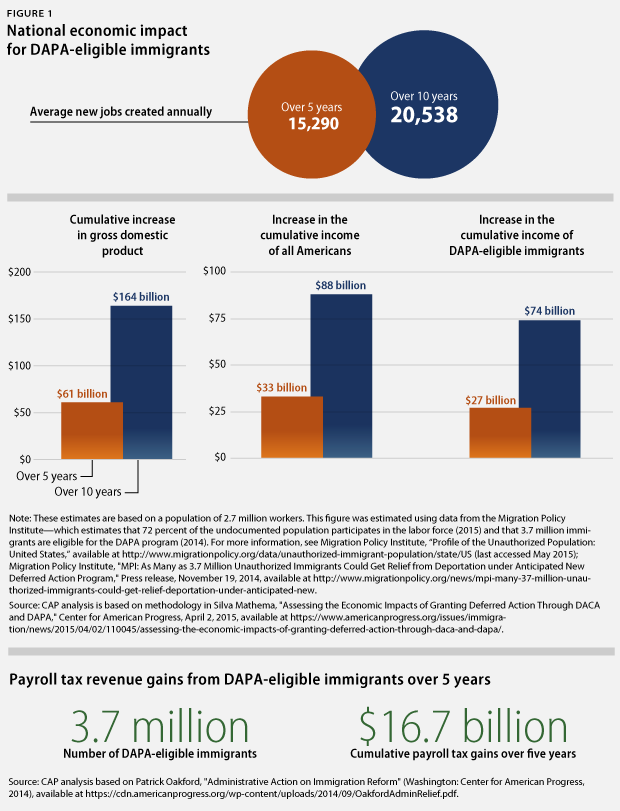Washington, D.C. — New analysis published today by the Center for American Progress finds that implementing DAPA would result in a GDP increase of $164 billion, an $88 billion increase in incomes for all Americans, and create 20,538 jobs per year over the next 10 years.
The analysis looks not only at the economic benefits of implementing the Deferred Action for Parents of Americans and Lawful Permanent Residents, or DAPA, program—which would have gone into effect today were it not currently blocked in ongoing litigation brought by Texas and other states before an ideologically motivated judge from one of the most conservative circuit courts in the country—but also at the electoral implications of this delay given the nation’s shifting voter demographics.
These are the important numbers to keep in mind: There are 3.7 million individuals who would benefit from DAPA. Combined, these individuals have 5.5 million U.S. citizen children. More than half a million of these children—nearly 600,000—are currently of voting age, and 1.7 million will be of voting age by the 2020 presidential election. Given that nearly 60 percent of Latino registered voters of all ages say they know family, friends, co-workers, or others who are undocumented, it is impossible to deny the likely effect that blocking implementation of a program that would protect loved ones would have on the reasoning of these voters.
As polls cited in the analysis find, 89 percent of Latinos support deferred action, 65 percent of Asian Americans polled in 11 states support executive actions on immigration, and Americans as a whole favor the DAPA policy by a 76 percent to 19 percent margin.
For more information or to speak to an expert, please contact Tanya S. Arditi at [email protected] or 202.741.6258.

###